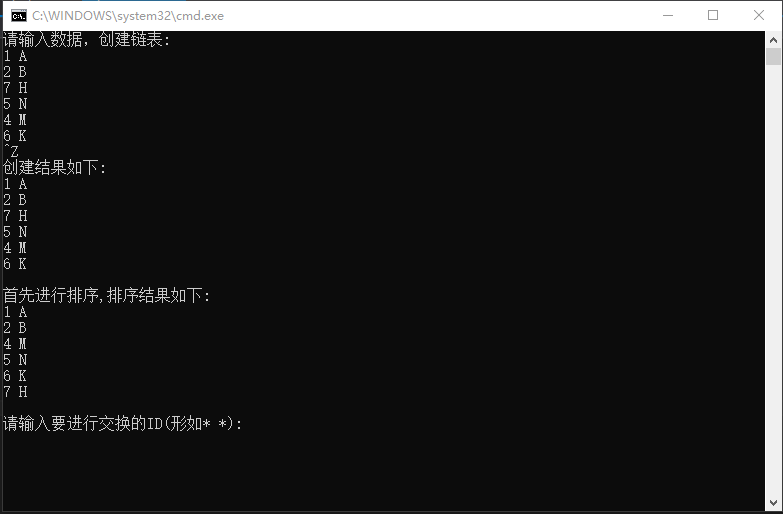mylib.c
const char* hello(){
return "Hello World!";
}
main.rs
#![feature(link_args)]
extern crate libc;
use libc::c_char;
#[link_args = "-L . -I . -lmylib"]
extern {
fn hello() -> *c_char;
}
fn main() {
//how do I get a str representation of hello() here?
}
解决方法
std::ffi模块中的结构,即
CStr和
CString.
CStr是动态大小的类型,因此它只能通过指针使用.这使它非常类似于常规str类型.您可以使用不安全的CStr::from_ptr静态方法从* const c_char构造& CStr.此方法不安全,因为无法保证传递给它的原始指针有效,它确实指向有效的C字符串并且字符串的生存期是正确的.
您可以使用其to_str()方法从& CStr获得& str.
这是一个例子:
extern crate libc;
use libc::c_char;
use std::ffi::CStr;
use std::str;
extern {
fn hello() -> *const c_char;
}
fn main() {
let c_buf: *const c_char = unsafe { hello() };
let c_str: &CStr = unsafe { CStr::from_ptr(c_buf) };
let str_slice: &str = c_str.to_str().unwrap();
let str_buf: String = str_slice.to_owned(); // if necessary
}
您需要考虑* const c_char指针的生命周期以及谁拥有它们.根据C API,您可能需要在字符串上调用特殊的释放函数.您需要仔细安排转换,以使切片不会超过指针. CStr :: from_ptr返回具有任意生命周期的& CStr的事实在这里有帮助(尽管它本身很危险);例如,您可以将C字符串封装到结构中并提供Deref转换,以便您可以像使用字符串切片一样使用结构:
extern crate libc;
use libc::c_char;
use std::ops::Deref;
use std::ffi::CStr;
extern "C" {
fn hello() -> *const c_char;
fn goodbye(s: *const c_char);
}
struct Greeting {
message: *const c_char,}
impl Drop for Greeting {
fn drop(&mut self) {
unsafe {
goodbye(self.message);
}
}
}
impl Greeting {
fn new() -> Greeting {
Greeting { message: unsafe { hello() } }
}
}
impl Deref for Greeting {
type Target = str;
fn deref<'a>(&'a self) -> &'a str {
let c_str = unsafe { CStr::from_ptr(self.message) };
c_str.to_str().unwrap()
}
}
此模块中还有另一种类型,称为CString.它与CStr具有相同的关系,字符串与str – CString是CStr的拥有版本.这意味着它“保持”字节数据分配的句柄,并且丢弃CString将释放它提供的内存(基本上,CString包装Vec< u8>,后者将被删除).因此,当您希望将Rust中分配的数据公开为C字符串时,它非常有用.
不幸的是,C字符串总是以零字节结束,并且不能在其中包含一个字符串,而Rust& [u8] / Vec< u8>完全相反 – 它们不以零字节结尾,并且可以在其中包含任意数量的它们.这意味着从Vec< u8>开始.到CString既没有错误也没有无分配 – CString构造函数都检查你提供的数据中的零,如果找到一些则返回错误,并在字节向量的末尾附加一个零字节,这可能需要重新分配.
与实现Deref< Target = str>的String类似,CString实现Deref< Target = CStr>,因此您可以直接在CString上调用CStr上定义的方法.这很重要,因为在CStr上定义了返回C互操作所需的* const c_char的as_ptr()方法.您可以直接在CString值上调用此方法,这很方便.
可以从可以转换为Vec< u8>的所有内容创建CString. String,& str,Vec< u8>和& [u8]是构造函数CString::new()的有效参数.当然,如果传递字节切片或字符串切片,将创建新的分配,而Vec< u8>或者字符串将被消耗.
extern crate libc;
use libc::c_char;
use std::ffi::CString;
fn main() {
let c_str_1 = CString::new("hello").unwrap(); // from a &str,creates a new allocation
let c_str_2 = CString::new(b"world" as &[u8]).unwrap(); // from a &[u8],creates a new allocation
let data: Vec<u8> = b"12345678".to_vec(); // from a Vec<u8>,consumes it
let c_str_3 = CString::new(data).unwrap();
// and now you can obtain a pointer to a valid zero-terminated string
// make sure you don't use it after c_str_2 is dropped
let c_ptr: *const c_char = c_str_2.as_ptr();
// the following will print an error message because the source data
// contains zero bytes
let data: Vec<u8> = vec![1,2,3,4,5,6];
match CString::new(data) {
Ok(c_str_4) => println!("Got a C string: {:p}",c_str_4.as_ptr()),Err(e) => println!("Error getting a C string: {}",e),}
}
如果你需要将CString的所有权转移到C代码,你可以调用CString::into_raw.然后你需要将指针返回并在Rust中释放它; Rust分配器不太可能与malloc和free使用的分配器相同.您需要做的就是调用CString::from_raw,然后允许正常删除字符串.

 C++的auto关键字在C+⬑新标准出来之前基本...
C++的auto关键字在C+⬑新标准出来之前基本... 文章浏览阅读315次。之前用C语言编过链表,这几天突然想用C+...
文章浏览阅读315次。之前用C语言编过链表,这几天突然想用C+... 文章浏览阅读219次。碰到问题就要记录下来,防止遗忘吧。文章...
文章浏览阅读219次。碰到问题就要记录下来,防止遗忘吧。文章...